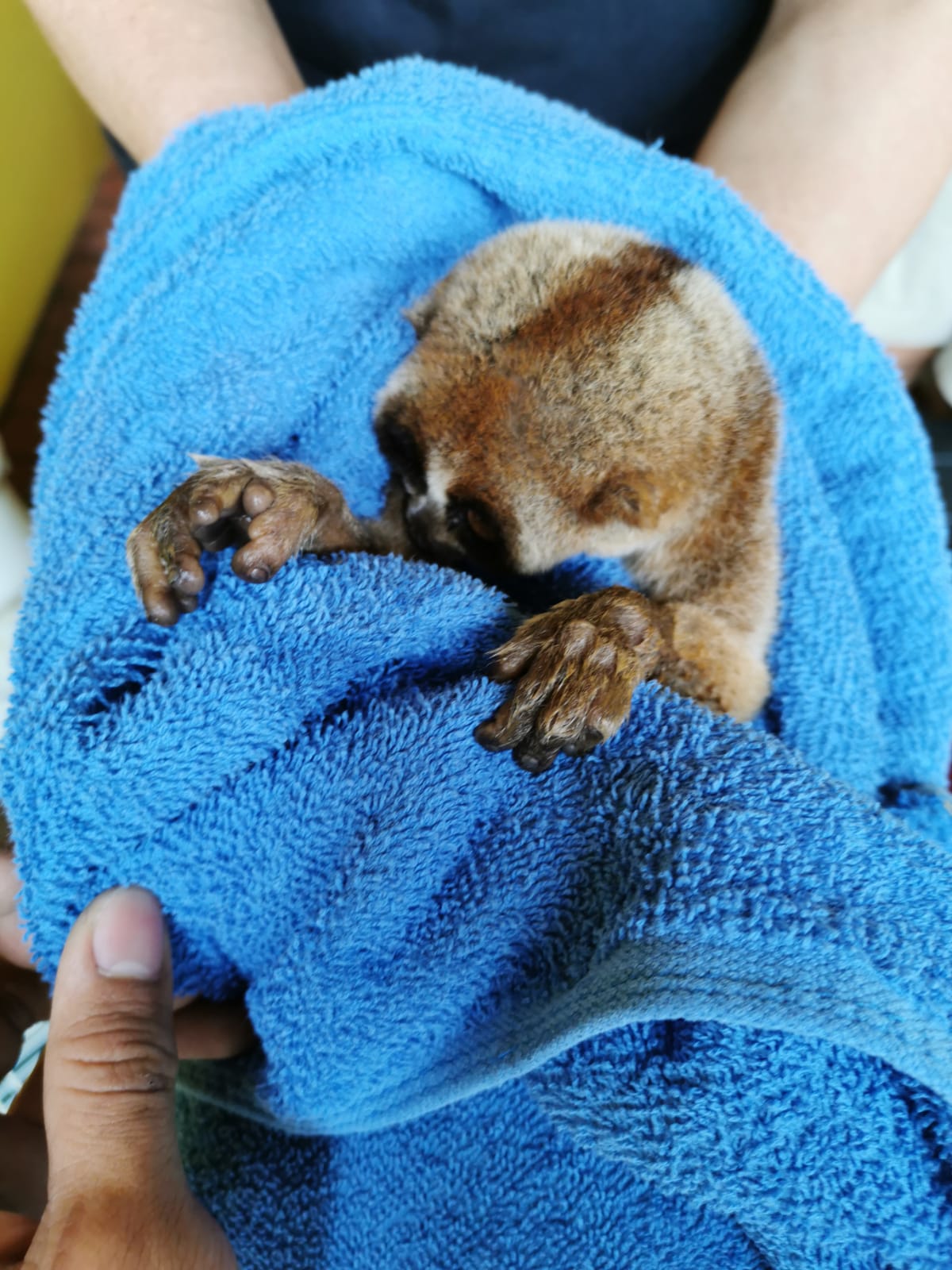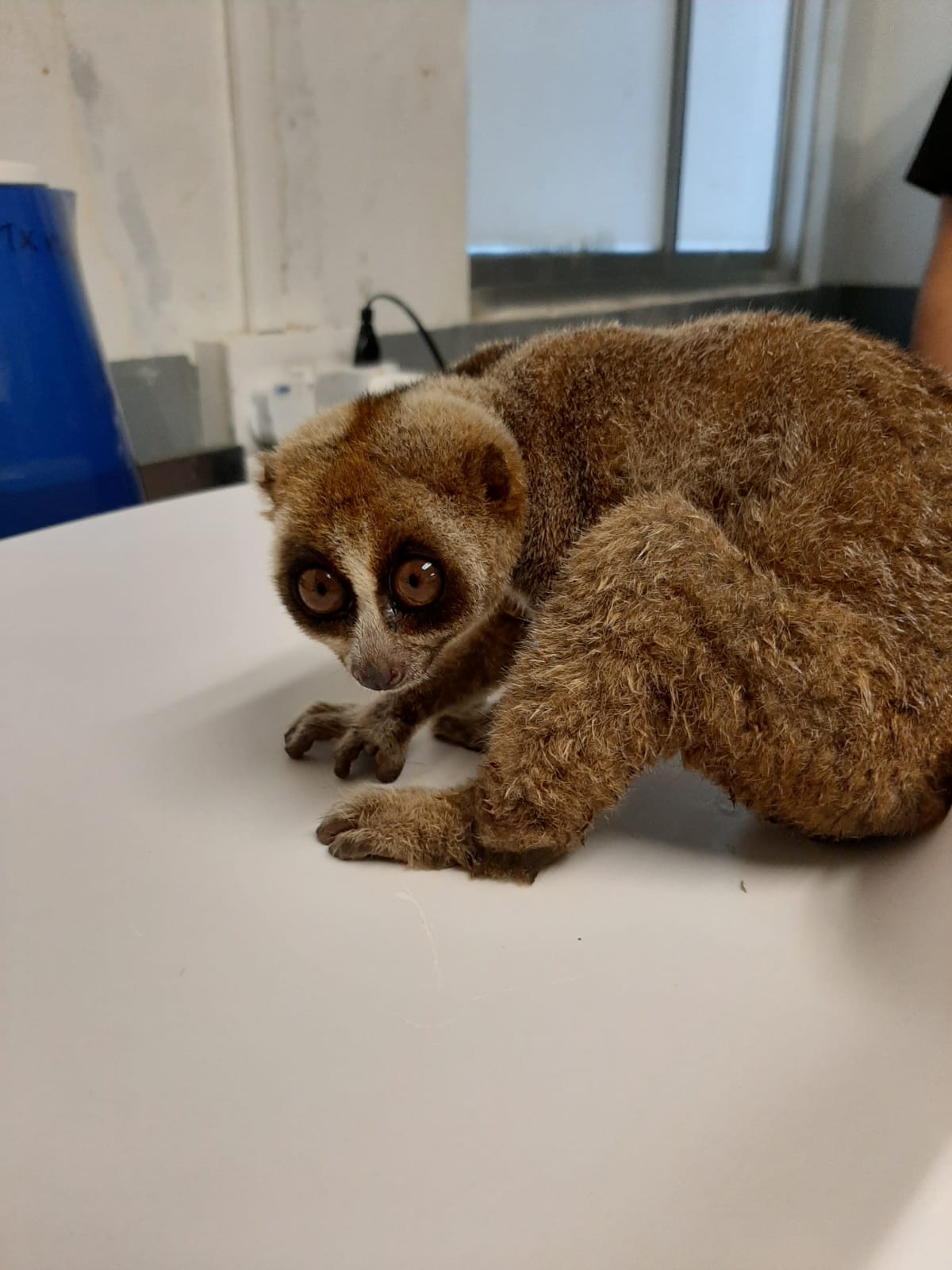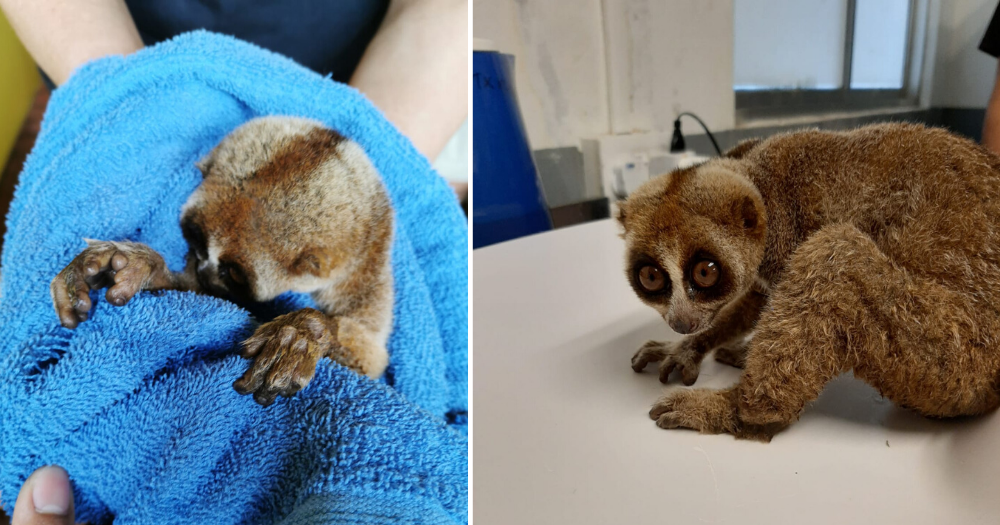A slow loris, a rather rare native of Singapore, was rescued by Animal Concerns Research and Education Society (Singapore) (Acres) on Dec. 19, 2019.
Slow loris was found with canines filed down
The loris, which Acres suspects to be a victim of poaching, was found by a member of the public in the middle of a road near the Singapore Island Country Club.
The country club is also located near the Central Catchment Nature Reserve.
The member of public had apparently managed to secure the small animal in a cage when Acres arrived.
Here's a photo of it bundled up in a towel.
 Photo courtesy of Acres
Photo courtesy of Acres
Acres told Mothership that upon rescuing and examining the slow loris, they found that its teeth had been filed down.
This, they believe, is a "clear indication that the loris was poached" and kept as an exotic pet.
 Photo courtesy of Acres
Photo courtesy of Acres
Slow lorises are the only venomous primates in the world—their saliva and a substance they secrete mixed together can result in a venomous bite, which could trigger an allergic reaction in humans.
Slow lorises in the illegal wildlife trade thus often have their teeth filed down to make them easier to handle.
Poachers might also completely remove their teeth by plucking them out.
The slow loris Acres rescued is currently being cared for by Wildlife Reserves Singapore.
Poaching one of threats slow lorises face
Sunda slow lorises are currently classified as vulnerable by the International Union for Conservation of Nature (IUCN).
However, the 2008 Singapore Red Data Book classifies the species as critically endangered in Singapore. It is uncertain what their conservation status is in Singapore now.
They are nocturnal, and individuals typically inhabit the forests of Singapore's nature reserves and Pulau Tekong, according to the National Parks Board (NParks).
Due to their cute and large-eyed appearance, slow lorises are often victims of the wildlife trade, and poaching is thus one of the biggest threats to the species.
On our tiny island though, the slow loris—an arboreal (tree-living) creature—could face habitat loss as well.
Those who find an animal in need of rescue can call Acres at their 24-hour wildlife crime and rescue hotline 97837782 or email [email protected].
Top photo courtesy of Acres
If you like what you read, follow us on Facebook, Instagram, Twitter and Telegram to get the latest updates.
